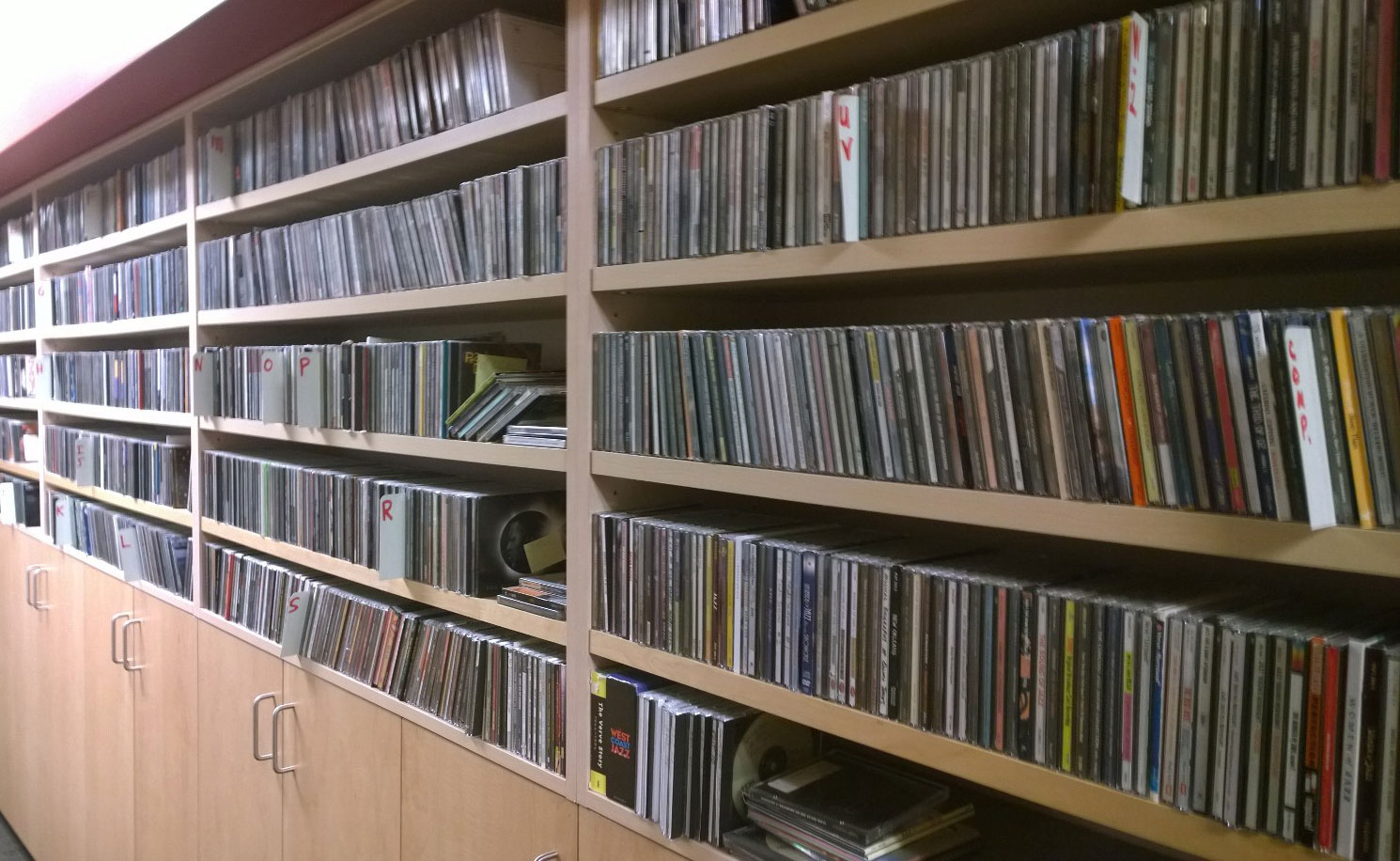By Morf Morford
Tacoma Daily Index
If you’ve ever wondered how a radio station happens, or even, if you are old enough, wonder what happened to music worth listening to, and engaging, interesting, if not eccentric radio personalities, this is for you.
Back in the old days of radio, music was on a solid format, like vinyl records or compact discs. Music was recorded in studios by musicians of all sorts. Radio stations did their best to appeal to every interest level and music was not segregated by age – though sometimes (at least in some parts of the country) by race.
Radio stations played, and radio hosts talked, about all kinds of music. It’s difficult to imagine now, but before the nation wide conglomerates (which are now in financial trouble (https://www.forbes.com/sites/spleverage/2018/02/01/distressed-debt-iheart-skips-106m-interest-payment-enters-30-day-grace-period/#d09a5b17bc6e) homogenized music and turned themselves (and to a large degree us, their listeners) into predictable demographic silos where every song was not a story or a proclamation but was instead a poll-based focus-group tested, sometimes computer generated set of harmonies programmed to sell – not to inspire.
There was a time when almost any given radio station, not bound by what was popular, would play excerpts form Broadway musicals, vocal or instrumental jazz standards, acoustic folk, country or popular music (sometimes on request). You might hear a classic crooner like Frank Sinatra alongside someone a generation younger – or expressing a whole other musical style and intention.
There was a radio station fairly recently that had as their marketing framework, the idea that we as listeners would have no idea what to expect next. Not too long ago, that was the format of almost every radio station.
My college-age students don’t listen to the radio. Most of them find standard commercial radio broadcasting stale, predictable or condescending.
They listen online, usually Spotify, Pandora or Youtube.
And they usually find themselves even more siloed and cut off from entire musical traditions.
Music used to be the great unifier – old and young could listen to the radio together without embarrassment.
Music, or radio in general (like talk radio) has become an immediate identifier and definer of age, politics or social position. For better or worse, most of us are attached to certain kinds of radio broadcast and repulsed by almost anything else.
Music, perhaps like everything else, has become something almost purely individualized, something we are almost reluctant to share with anyone who doesn’t already like what we like.
And most of us are reluctant to seriously listen to a kind of music we don’t already like.


Commercial radio in the greater Puget Sound area used to be resourceful, creative and local. We had a mix of public, commercial and alternative radio that was the envy of far larger urban areas.
KPLU (currently KNKX) at 88.5 FM and KUOW at 94.9 FM have been the mainstays of public radio for decades.
Stations like KRAB, KZAM, KBCS and KEXP and a few others filled out the local radio landscape with unique programming. Most are gone, but a few continue.
Conglomeration and predictability are the guiding principles of radio now. But not just radio. Corporate takeovers and the homogenization of our tastes in everything from food to music has limited our choices and we, and our airwaves and diets, are the poorer for it.
The chatty, witty radio host (who might even take call-in requests!) is a relic of the past. All-news and all-jazz is almost certainly code for automated and all-programmed.
It’s the end of an era. And it’s a sad and all too familiar story.
As in every area perhaps, the winner of this particular king-of-the-mountain game will not stay very long.
In Tacoma, as always perhaps, there are a few alternatives.
Tacoma.fm has been broadcasting (online only) for several years now. They feature local radio hosts – and some local music. They welcome any who would like to lend their voice to the airwaves. In the spirit of full disclosure, I have to say that I had a radio program on Tacoma.fm for a year or so some time ago.
Here’s an excerpt from their website – “Experience is not required, just a desire to share your passion for music, our community, and have some fun! Do you have an idea for a music show? Maybe a talk show, or a live broadcast of a local event? Maybe something completely weird?”
For a far younger look at music, check out KUPS at http://www.kups.net/. This is the University of Puget Sound student-run station.
Radio Tacoma (KTAH LP 101.9 FM) is local – literally; their signal is essentially only available in the central part of the city.
As their website puts it: “Radio Tacoma is a low-power FM public access radio station developed to serve Tacoma, Washington, to provide our community with the opportunity for participatory democracy and to provide a voice for progressive groups, union members, minority groups and local talent that might otherwise not get heard.
Radio Tacoma wants to become a hub for our community to share information, education and to showcase songwriters, musicians, storytellers. We aspire to aid our community in knowing what is happening locally in the progressive arena and what people are working on so that everyone who wishes to can be an active participant in improving the quality of life in Tacoma.”
If you are a fan of public radio, you can follow your favorite programs as you travel the world here – http://www.publicradiofan.com/.
For true music/history/radio nerds, the Library of Congress has digitized their extensive archives. They call it the National Jukebox. You can peruse and listen here – http://www.loc.gov/jukebox/.
From their website: “The National Jukebox debuts featuring more than 10,000 78rpm disc sides issued by the Victor Talking Machine Company between 1900 and 1925.
Imagine your computer as a new Gramophone purchased for family and friends to enjoy in your home parlor. Audition popular recorded selections of the beginning of the 20th century years—band music, novelty tunes, humorous monologues, hits from the season’s new musical theater productions, the latest dance rhythms, and opera arias.”
If you want to create your own radio station/play list with almost anything from punk, indie, or travel to folk/acoustic music, you might like http://www.jango.com/. They are online only.
If you are more interested in stories or old fashioned radio drama, old time radio check out http://www.archive.org/details/oldtimeradio.
I was just listening to the great guitar master (and inventor of the electric guitar) Les Paul at http://www.archive.org/details/LesPaulShow. There are many shows which include both his performances and his explanations of what he is doing.
If you are in a spooky, Halloween mood, take a listen to the classic radio show The Inner Sanctum http://www.archive.org/details/Inner_Sanctum_otr.
For more spooky stuff, check out http://www.archive.org/details/HalloweenHorror_859.
For some vintage (and probably stereotypical) views of race relations many years ago, take a sample of classic Amos & Andy shows at http://www.archive.org/details/OTR_Amos_Andy_172_Episodes.
No trip to the past would be complete without a visit to the Cisco Kid –http://www.archive.org/details/Cisco_Kid_page2, Orson Welles’ War of the Worlds – http://www.archive.org/details/mixes-tuckermike and of course, the original Dragnet series http://www.archive.org/details/Dragnet_OTR.
For comedy, check out the classic Danny Kaye shows http://www.archive.org/details/otr_dannykayeshow or Our Miss Brooks at http://www.archive.org/details/Our_Miss_Brooks_190_Episodes.
For a total immersion into the world of online audio, radio (including audio books, videos and images, look here – https://archive.org/about/.
For an overview of several categories of online music, you might start here – https://www.lifehack.org/articles/technology/15-worlds-best-free-online-music-streaming-platforms.html.








